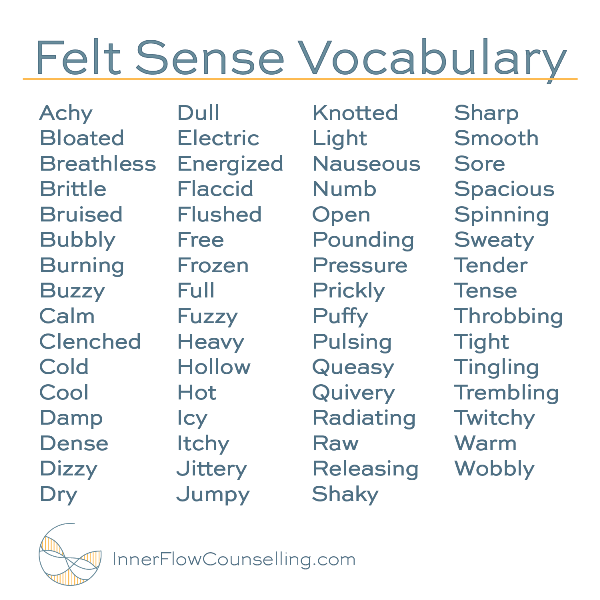
Finding Words
Through the healing process I support clients in turning towards their bodies to process, to feel, to gain clarity, to release, and revivify. Initially this can be complicated by a nervous system that is more often than not in a state of dysregulation. In addition, we may have little capacity to describe what we are experiencing in our bodies. This can be confusing and lead to exacerbated hypervigilance and immobilization symptoms. This makes it hard for us to decipher between real threats and perceived threats.
Being able to describe what we feel is an important part of making sense of our experiences. To do this we need to have the vocabulary to do so. Having the words to describe our sensations is not that common; in fact it is something that a lot of us learn in adulthood. Understanding and communicating our experience is a foundational component of healing and building resiliency. Just like how learning emotional vocabulary is important for emotional intelligence, so too is having a diverse somatic vocabulary to describe our felt sense.
Why is a felt sense vocabulary important?
It helps us build a skill called interoception which is our ability to listen to and understand our internal cues. On a basic level it tells us that we are hungry or need to go to the bathroom and on a more fine-tuned level, interoception informs our perceptions and evaluation of people and situations. Combined with the information we take in from our external environment (exteroception) it helps us accurately measure our sense of safety or threat, known as neuroception.
Having a better sense of self is supported by understanding our internal sensations and this is a skill I assist clients in developing in part through language.
I’ve created a printable felt sense vocabulary list to help you find accurate words to describe your sensations. This is also great to teach children because when they can clearly communicate their experience they are less likely to get frustrated (just like us adults). This list is by no means exhausted; please add words as they come to you. I suspect kids will have some great suggestions.
